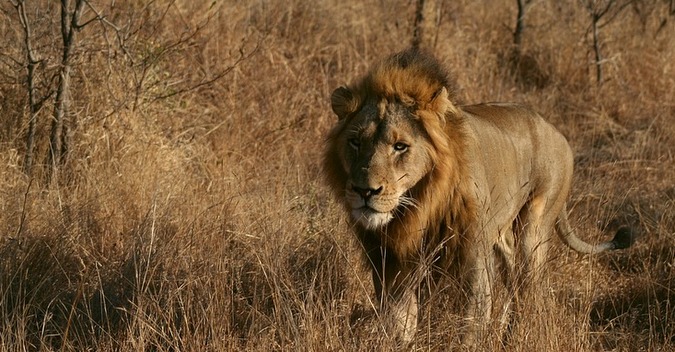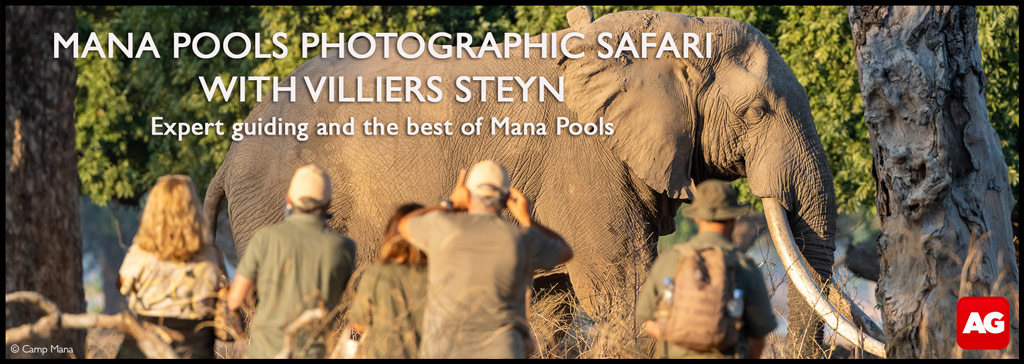
Opinion post: Written by Simon Espley, CEO of Africa Geographic
A large male lion was trophy hunted on Thursday morning last week in the Greater Kruger National Park. We have confirmed by way of personal discussion with the warden of the area that the hunter is from the United States and that he paid in the region of R1-million to kill this wild lion. The hunter’s name is unknown at this stage. Wildlife activists claim that the lion was a pride male lion they call Skye, but this fact is yet to be confirmed.
The lion was killed in Umbabat Private Nature Reserve, which forms part of the Associated Private Nature Reserves (APNR), and falls within the Greater Kruger National Park. There are no fences between the private reserves and the Kruger National Park. Umbabat, in turn, is made up of many smaller private properties.
It’s highly likely that this tragic incident will justifiably trigger an emotional tsunami, with substantial consequences for Umbabat, neighbouring private game reserves and possibly even the entire Greater Kruger. At the time of writing, there is already much speculation and finger-pointing within Umbabat, APNR/Greater Kruger and amongst the broader public. Members of Umbabat are meeting today in Johannesburg to discuss the situation.
I tried to determine the facts as they currently stand and can report as follows, after a lengthy telephone discussion this morning with Umbabat warden Bryan Havemann, and with representatives of other affected parties. Havemann provided all documentation requested by me. Africa Geographic will keep you advised of further developments, as we become aware of them.
1. Was the hunt legal?
Havemann: Yes. The authority to hunt the lion was provided in a quota letter issued on 21 February 2018 by the relevant governing authority – Mpumalanga Tourism and Parks Agency. The quota request by Mbabat was initially turned down, due to inadequate information being provided, but subsequently approved once the outstanding information was provided. Information published by wildlife activists this morning via a South African news platform was based on outdated information and is not accurate.
2. Was the lion baited?
Havemann: Yes, the lion was baited. We baited the lion in order to make sure that we did not shoot lions that are prohibited in terms of the lion hunting protocol (see below).
3. How old was the lion?
Havemann: The lion met the requirements of the Greater Kruger lion hunting protocol of April 2018. These requirements are:
i) Older than 6 years;
ii) Reasonable steps are taken to ensure that no pride males under 8 years old are selected;
iii) Consultation with lodges and landowners in the area;
iv) Males cannot be shot if in the presence of females;
v) No appearance of the recessive leucistic gene (‘white lions’).
4. Was the lion killed the lion referred to as ‘Skye’?
Havemann: I am unsure of the exact identity of the lion named ‘Skye’, as we do not name lions. We met with the local landowners and lodges during the run-up to the hunt, as required by the lion hunting protocol, who provided photos of a male lion they have named ‘Skye’ (because he has a scar under his eye). We undertook to ensure that this named lion was not the target lion, and made sure that the Umbabat professional hunter was aware that this lion was out of bounds. A report by Umbabat chairman Lenny Willson described the lion killed by the hunter as follows: no facial scarring, age 8.5 to 9 years old, worn down and broken teeth, prominent spine, no appearance of ‘white lion’ gene, no other lions in the area before or after the hunt.
5. Why does Umbabat hunt lions and other species?
Havemann: We permit hunting in order to pay for ongoing reserve management and security costs. There is no profit in this, we try to cover costs. The landowners also pay levies, which provide the balance of the funds required to keep the private land available for the good of wildlife conservation. We only have one commercial lodge amongst our landowners, and so cannot reply on tourism as a major funder. We would be happy to stop trophy hunting if third parties would provide the necessary funding.
Final comment from Simon Espley, CEO of Africa Geographic
Humankind has surely evolved sufficiently to reject the fetish of a few wealthy people for killing iconic animals for fun. It is time to get rid of trophy hunting of these icons as a conservation funding mechanism where there are alternatives, and I am totally convinced that the intellectual and financial resource at Umbabat and other nearby private game reserves could solve this riddle if they applied their minds and thought outside of traditional methods. I know that many of the Umbabat owners already do feel this way.
If alternative solutions are not found, there is a real risk that the APNR will start breaking up, and that fences will come back up in places. The anger generated amongst the social media-empowered general public, driven by activists who value impact over fact, is a toxic cocktail that will drive change – regardless of the consequences.
This will be a journey for Umbabat, not an event. It’s time to start that journey.
To comment on this story: Login (or sign up) to our app here - it's a troll-free safe place 
![]()






